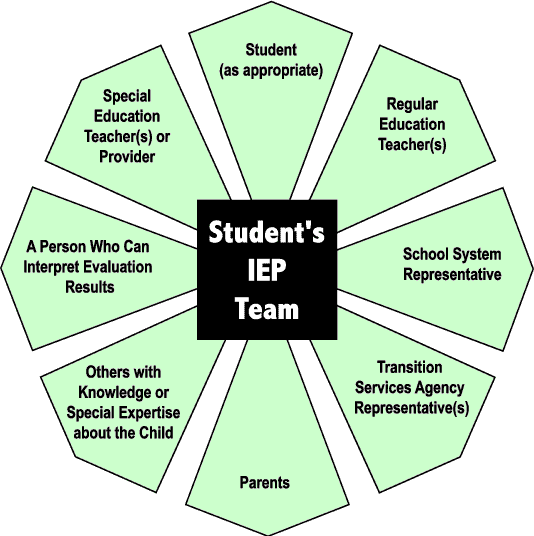Autism Diagnosis Often Occurs Later for Black Children
Under-representation of African Americans in autism genetic research
Autism diagnoses tend to come later for African-American children
.jpg)
We are not at the table. Our voices are not being heard. Our needs are not being studied and our children are falling through the cracks. Okay, okay, so I am a little biased, I have 3 children on the spectrum, so I tend to be a little more concerned than the average parent. This is an issue that is not being adequately addressed.
 First and foremost, let me state what this is NOT about; its not about money, its not about cures, and its not really about race. Its about access and outcomes. If you don't have the access, you don't get the outcomes. Truthfully an African American child on the autism spectrum has no greater special need than a white child on the spectrum. In fact one study suggest that it is actually socioeconomic status not race which determines outcomes for children with autism.
First and foremost, let me state what this is NOT about; its not about money, its not about cures, and its not really about race. Its about access and outcomes. If you don't have the access, you don't get the outcomes. Truthfully an African American child on the autism spectrum has no greater special need than a white child on the spectrum. In fact one study suggest that it is actually socioeconomic status not race which determines outcomes for children with autism......children of highly educated parents reap greater benefits with respect to early diagnosis for autism and consequent opportunity for engagement in treatment, net of the severity of their disorder, than those whose parents are less educated. In general, children of high socioeconomic background continue to be diagnosed earlier than the less privileged, and although the gap has diminished it remains significant.
The key is early diagnosis. Children who are diagnosed earlier have better outcomes than children who are diagnosed later. Children benefit from specialized therapies like speech, occupational and ABA based therapies at an earlier age which can be crucial to increasing their later quality of life. Depending on what state you are in, many of these therapies can be obtained through and paid for by medical assistance if you qualify and/or early intervention. Most doctors know about these services and can easily refer children with developmental delays to these programs. Is this where the breakdown begins? Are doctors not referring our kids to be developmentally screened or are parents not informed about developmental milestones? It could be a combination of both. In my own personal experience, it was I who asked my child's physician for help when my son started to regress. She then referred me to Early Intervention.
It is usually at this point where the conversation stops. In my research I could find no substantial initiatives to improve the numbers of African american children getting screened for autism. Why is this? I have a theory, one I haven't seen readily discussed.
In another sphere there is a campaign to decrease the over representation of African American male students in special education. Advocates and parents are trying to get our misplaced male children out of special education and back into regular classrooms. This movement is in response to the racist practice of funneling black children with perceived behavior issues into special education classrooms. The NEA (National Education Association) states on their Blacks: Education Issues page;
Far too often, Black students—males in particular—are unnecessarily placed in special education classes, while the number of Black students who take honors and advanced courses remains significantly below that of other groups.
Hmm? Now let me think. What other group of individuals is also overwhelmingly male? Could this be the reason why black parents shy away from early developmental screening and diagnosis? An unconscious aversion to involving their child in the special education system? As an advocate, I can admit that dealing with school personnel is daunting. For the average parent with no training, the special education system can be extremely intimidating. Even with IDEA regulations, there are some schools that try to bulldoze families into education plans that are far from individual.
Even if the two issues are connected, I can't say with any confidence that this is the primary force in the later diagnosis of African American children. One must also consider the general distrust that Black parents have for doctors;
Even if the two issues are connected, I can't say with any confidence that this is the primary force in the later diagnosis of African American children. One must also consider the general distrust that Black parents have for doctors;
A cross-sectional survey of parents who accompanied children to a primary care clinic found that 67% of African-Americans distrusted the medical establishment compared with 50% of white parents (P=0.04), Kumaravel Rajakumar, M.D., of the University of Pittsburgh, and colleagues reported in the February issue of Archives of Pediatrics and Adolescent Medicine.Distrust was inversely associated with education, so that while 74% of black parents who had less than a high school education were wary of doctors and researchers, only 44% of those who were college graduates shared that feeling (P =0.03), the researchers found.
- African American Parents Distrust the Medical Establishment
Here we are back to the education of the parent; one of the leading predictors of socioeconomic status, driving the issue of trust in the medical establishment for black families.
Unfortunately, we don't have an autonomous black community where we are all on the same page when it comes to the social issues that effect our families and even if we did would this issue even rate in the top ten of "black issues?" No, I don't think it would. Here is why it should. The latest data from the CDC state that 1 in 88 children have been identified with an autism spectrum disorder and in the black community 1 in 98. I am not trying to scare anyone, I hate statistics. What I hate even more is people falling through the cracks of society - a nonverbal adult who was never given access to assistive technology and has no functional communication skills other than vocalizations. Or teenagers with severe behavioral issues being heavily sedated and restrained. I can't tolerate vibrant and intelligent individuals that have the potential to live and work in the community being underestimated and stifled.
So with all this talk, do I have a solution? Yes I do. Of course I do. In researching for this post, I noticed a number of splinter, grass roots attempts to address this issue. I believe that all of us who have been working on a small scale in our own communities should band together and form a greater network to start creating our own PSA's and materials to disseminate nationally. This campaign has to go hand in hand with an advocacy component to address the misuse of the special education system as a warehouse for "problem" black youth. Possibly creating a parent curriculum on how to navigate the special education system and advocate effectively for your child -- one for parents of children who need special education and one for parents who are trying to get their child out of special education. In addition screening must be culturally competent and be able to get to the families who aren't seeking diagnosis due to fear or mis-education. Also, let's not forget about our Hispanic brothers and sisters (an incidence of autism of 1 in 127) whose children are also diagnosed much later and whose presence is also missing from the table.
No more kids falling through the cracks, Autism Awareness, now in black, brown and yellow.
Please comment and share your ideas or techniques to build autism awareness in the African American and Hispanic communities.
No more kids falling through the cracks, Autism Awareness, now in black, brown and yellow.
Please comment and share your ideas or techniques to build autism awareness in the African American and Hispanic communities.
Statistics from - Autism Rates Rising Sharply, CDC Reports and the CDC


